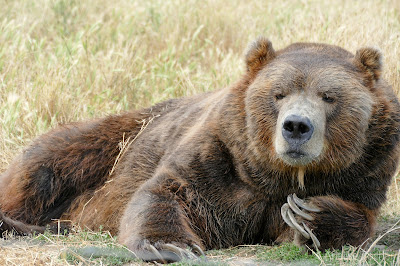Truth and Transparency, a recent book by Professors Alan K. Chen and Justin Marceau, is a comprehensive and gratifying tour of the history and law of undercover reporting.
Chen and Marceau teach at the Sturm College of Law at Denver University and have especial expertise in constitutional law, and respectively in public interest law and animal law. In their co-authorship, they examine the social phenomenon of undercover reporting that lies at the intersection of journalism, tort law, and the First Amendment—and often animal law, too.
I know Chen best for his work in opposing ag gag laws: statutes designed to stop and punish journalists, activists, and whistleblowers from investigating and revealing wrongful conduct and animal cruelty in the agricultural industry, especially by way of undercover video recording. Chen has worked against ag gag in Idaho, Iowa, Kansas, and Utah. I've been privileged to sign on to some of the amicus briefs he has coordinated.
Chen and Marceau leave no stone unturned. I was intrigued especially to read about the history of undercover reporting in the United States, the evolution of undercover reporting in its treatment in journalism ethics, and the thorough explication of undercover reporting in tort and First Amendment law.
Upton Sinclair's 1905 The Jungle, a novel based on real-life undercover reporting in the meatpacking industry, was my mind's go-to on the early history of the practice. Apropos of the present Women's History Month, however, it was female reporters such as Nellie Bly who carved out a niche for undercover reporting in the popular imagination in the late 19th century and deserve the most credit for pioneering the genre.
Bly, born Elizabeth Jane Cochran, famously had herself committed to a deplorable New York mental institution in 1887 for 10 days before a New York World lawyer secured her release, per prearrangement. Chen and Marceau recount the stories of Bly and other so-called "girl stunt reporters." They trace the history even further, as well, to antebellum abolitionists determined to expose the horrors of slavery.
Chen and Marceau explore a range of treatments of undercover reporting in journalism ethics, including the qualified permissiveness of the 1996 Code of Ethics of the Society of Professional Journalists, preserved in the more recent 2014 iteration. They observe as well the almost complete prohibition on the practice at National Public Radio, where journalists may engage in deception only when necessary to protect themselves in a conflict zone, and secret recordings may be used in only extraordinary circumstances.
A case that naturally arises throughout the book is the ABC News investigation of hygienic practices at Food Lion in the 1990s (at Reporters Committee). This case was contemporary with my university study of journalism, so was front and center in my class on journalism ethics. Whether or when journalists might engage in deception to get the story is a favorite point of discussion in journalism ethics class. The problem stratifies the need for public trust in journalism across the micro layers of people who are the subjects of stories and the macro layers of readers and the public interest.
A court in Food Lion ultimately held that ABC journalists could be sued for trespass or breach of loyalty, but awarded only nominal damages. The factual problem for the plaintiffs that precluded a more substantial damages award was that notwithstanding the concealment of their motives, the journalists had been given jobs at Food Lion, and they did their jobs. So from a damages perspective, Food Lion got what it paid for. The appellate court, unlike the trial jury, was unwilling to consider the reputational harm flowing from truthful disclosures, if deceptively obtained, as any kind of compensable loss.
The outcome in Food Lion was consistent with the broad propositions of First Amendment law that there is no right to gather the news, which is why the Freedom of Information Act is a statutory rule, not a constitutional one; and that journalists are not exempt from generally applicable expectations of law, such as honoring contracts, obeying police orders—and not trespassing. As Chen and Marceau observe, the outcome exerted a chill in investigative reporting.
However, the Food Lion rule is hardly absolute, Chen and Marceau also aptly observe. The rule of no-right-to-gather-news has never been wholly true. The courts have given media latitude to test the limits, for example disallowing wiretap liability for receiving probably illegally intercepted communications. And technological advances have complicated the picture. A majority of U.S. circuit courts now, in a post-George Floyd world, have held that the First Amendment protects video-recording police in public places. The proposition seems right, but it doesn't square with the news-gathering rule.
The outcome in Food Lion further hints at a deeper problem in tort law that Chen and Marceau explore: the problem of damages in cases of only notional harm. In contemporary doctrine, a trespass with no infliction of physical harm or loss might entitle a plaintiff to an equitable remedy of injunction, but no more than nominal damages in tort law, thus Food Lion. Though with no damages in the offing, there is no deterrence to deceptive trespass, a logic that likely explains the eventual waning of Food Lion's chilling effect. The problem bleeds into the contemporary debate over the nature of damages in personal privacy violations.
Journalism exceptionalism resonates as well in the problem of trespass and consent. Food Lion suggests that consent to enter property is vitiated by deception as to one's motive. Chen and Marceau explore opposing academic and judicial views on the question.
In a remarkable work of empirical research unto itself, Chen and Marceau's chapter 6 presents compelling data to show overwhelming public support for undercover reporting to expose wrongdoing. Public support seems to transcend political ideology and even whether the perpetrator of deception is a journalist or activist.
Chen and Marceau argue summatively and persuasively for a qualified legal privilege to protect journalistic deception in undercover reporting. Historical, ethical, and legal authorities all point in the same direction. Even the Fourth Circuit in Food Lion hedged its bets, observing that generally applicable employment law as applied in the case had only an "incidental effect" on news-gathering; in other words, news-gathering was outweighed as a consideration, not shut out.
Technological advances and citizen journalism will continue to generate conflict among conventional norms of property and fair dealing, evolving norms of privacy, and public interest in accountability in private and public sectors. Truth and Transparency is an essential manual to navigate in this brave new world.
















